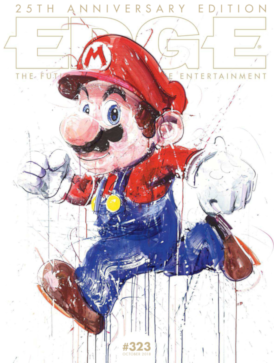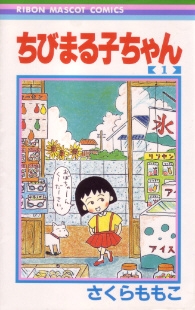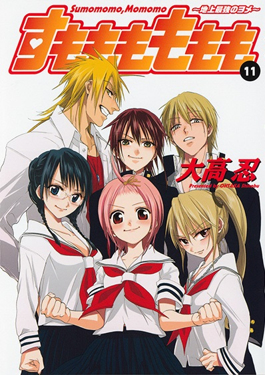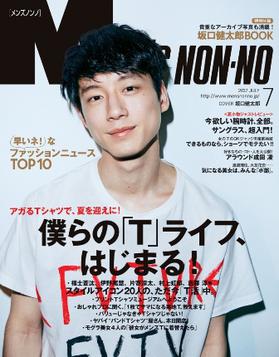Wired is a monthly American magazine, published in print and online editions, that focuses on how emerging technologies affect culture, the economy, and politics. Owned by Condé Nast, it is headquartered in San Francisco, California, and has been in publication since March/April 1993. Several spin-offs have been launched, including Wired UK, Wired Italia, Wired Japan, Wired Czech Republic and Slovakia and Wired Germany.

A Daruma doll is a hollow, round, Japanese traditional doll modeled after Bodhidharma, the founder of the Zen tradition of Buddhism. These dolls, though typically red and depicting the Indian monk, Bodhidharma, vary greatly in color and design depending on region and artist. Though considered a toy by some, Daruma has a design that is rich in symbolism and is regarded more as a talisman of good luck to the Japanese. Daruma dolls are seen as a symbol of perseverance and good luck, making them a popular gift of encouragement. The doll has also been commercialized by many Buddhist temples to use alongside the setting of goals.

Weekly Shōnen Jump is a weekly shōnen manga anthology published in Japan by Shueisha under the Jump line of magazines. The manga series within the magazine consist of many action scenes and a fair amount of comedy. Chapters of the series that run in Weekly Shōnen Jump are collected and published in tankōbon volumes under the Jump Comics imprint every two to three months. It is one of the longest-running manga magazines, with the first issue being released with a cover date of August 1, 1968.

SLA Industries is a role-playing game first published in 1993 by Nightfall Games in Glasgow, Scotland. The game is set in a dystopian far-flung future in which the majority of the known universe is either owned or indirectly controlled by the eponymous corporation "SLA Industries" and incorporates themes from the cyberpunk, horror, and conspiracy genres.

The maneki-neko is a common Japanese figurine which is often believed to bring good luck to the owner. In modern times, they are usually made of ceramic or plastic. The figurine depicts a cat, traditionally a calico Japanese Bobtail, with a paw raised in a beckoning gesture. The figurines are often displayed in shops, restaurants, pachinko parlors, dry cleaners, laundromats, bars, casinos, hotels, nightclubs, and other businesses, generally near the entrance, as well as households. Some maneki-neko are equipped with a mechanical paw which slowly moves back and forth.

Animerica was a monthly magazine published by Viz Media containing news, feature articles, and reviews on manga, anime, and related media, as well as a section that serialized manga published by Viz. After an initial November 1992 preview issue, Animerica's first regular issue was released in February 1993 with a March 1993 cover date. In 1998, Animerica Extra was launched as a separate manga anthology magazine which eventually focused specifically on shōjo titles. It was canceled in 2004.

Edge is a multi-format video game magazine published by Future plc. It is a UK-based magazine and publishes 13 issues annually. The magazine was launched by Steve Jarratt. It has also released foreign editions in Australia, Brazil, France, Germany, Italy, and Spain.

Chibi Maruko-chan is a manga series written and illustrated by Momoko Sakura. The series depicts the simple, everyday life of Momoko Sakura, a young girl everyone calls Maruko, and her family in suburban Japan in the year 1974. Maruko is a troublemaker, and every episode recounts Maruko's trouble and how she and her friends succeed in solving the situation. The series is set in the former of Irie District (入江町), Shimizu, now part of Shizuoka City, birthplace of its author.

Kamikaze Girls, originally released in Japan as Shimotsuma Monogatari: Yankī-chan to Rorīta-chan, is a 2002 Japanese light novel written by Novala Takemoto. The story centers on the friendship between two students named Momoko Ryugasaki and Ichigo "Ichiko" Shirayuri. These two are from completely different backgrounds: one is a Lolita-fashioned girl and the other, her antithesis, is a yankī. Viz Media licensed the novel for an English-language release in North America in 2006.

Sumomomo, Momomo: The Strongest Bride on Earth is a Japanese manga series written and illustrated by Shinobu Ohtaka. It was serialized in Square Enix's seinen manga magazine Young Gangan from January 2004 to February 2009, with its chapters collected in 12 tankōbon volumes. The story centers on a young girl, a strong martial artist, who wants to marry and bear a child with a boy that she believes to be a strong fighter. A 22-episode anime television series adaptation by Studio Hibari was broadcast on TV Asahi from October 2006 to March 2007, with two additional original video animation (OVA) episodes released in August 2007. The manga was licensed for English release in North America by Yen Press.

Evening was a bi-weekly Japanese seinen manga magazine published by Kodansha from 2001 to 2023. Circulation was reported by the Japan Magazine Publishers Association at 115,617 copies in 2015.

Cocohana (ココハナ) is a Japanese josei manga magazine published by Shueisha since May 28, 1994.
Burrn! is a monthly Japanese magazine for fans of heavy metal music, published since September 1984. It is the major publication on heavy metal music in the country. As of 2013, it is published by Shinko Music Entertainment in Tokyo. The magazine's content is in Japanese and largely focuses on Western artists, while the covers are predominantly in English.
Robert Yellin is an American Japanese ceramics specialist who has regularly written for several publications. Yellin currently resides in Japan where he has been living since 1984. He owns and runs Robert Yellin Yakimono Gallery in Kyoto in addition to an informational website and online Japanese ceramic art gallery. Yellin previously wrote the "Ceramic Scene" column for The Japan Times for 10 years. He has written in the past for Daruma Magazine, Asian Arts, Winds Magazine, among others. He previously wrote for the quarterly Japanese ceramics magazine Honoho Geijutsu. Yellin wrote Yakimono Sanka published by Kogei Shuppan, a book about sake utensils which was later translated into English under the title Ode to Pottery, Sake Cups and Flasks.

Byte was a microcomputer magazine, influential in the late 1970s and throughout the 1980s because of its wide-ranging editorial coverage.
The IPSJ - Information Processing Society of Japan is a Japanese learned society for computing. Founded in 1960, it is headquartered in Tokyo, Japan. IPSJ publishes a magazine and several professional journals mainly in Japanese, and sponsors conferences and workshops, also mainly conducted in Japanese. It has nearly 20,000 members. IPSJ is a full member of the International Federation for Information Processing.

Kuchi-e (口絵) are frontispieces of books, especially woodblock printed frontispieces for Japanese romance novels and literary magazines published from the 1890s to the 1910s.

Men's Non-no (メンズノンノ) is a Japanese monthly men's fashion and lifestyle magazine based in Tokyo. Published by Shueisha, it is an offshoot of women's magazine Non-no.
Peach Momoko is a pseudonymous Japanese comic book artist and writer. In 2020, she signed an exclusive deal with Marvel Comics as part of their Stormbreakers program for rising talent in the American comic book industry. In 2021, she received both the Eisner Award and Ringo Award for best cover artist. That same year, she launched the "Momoko-verse", a line of comics at Marvel that reimagines the Marvel Universe within the lens of Japanese folktales.













